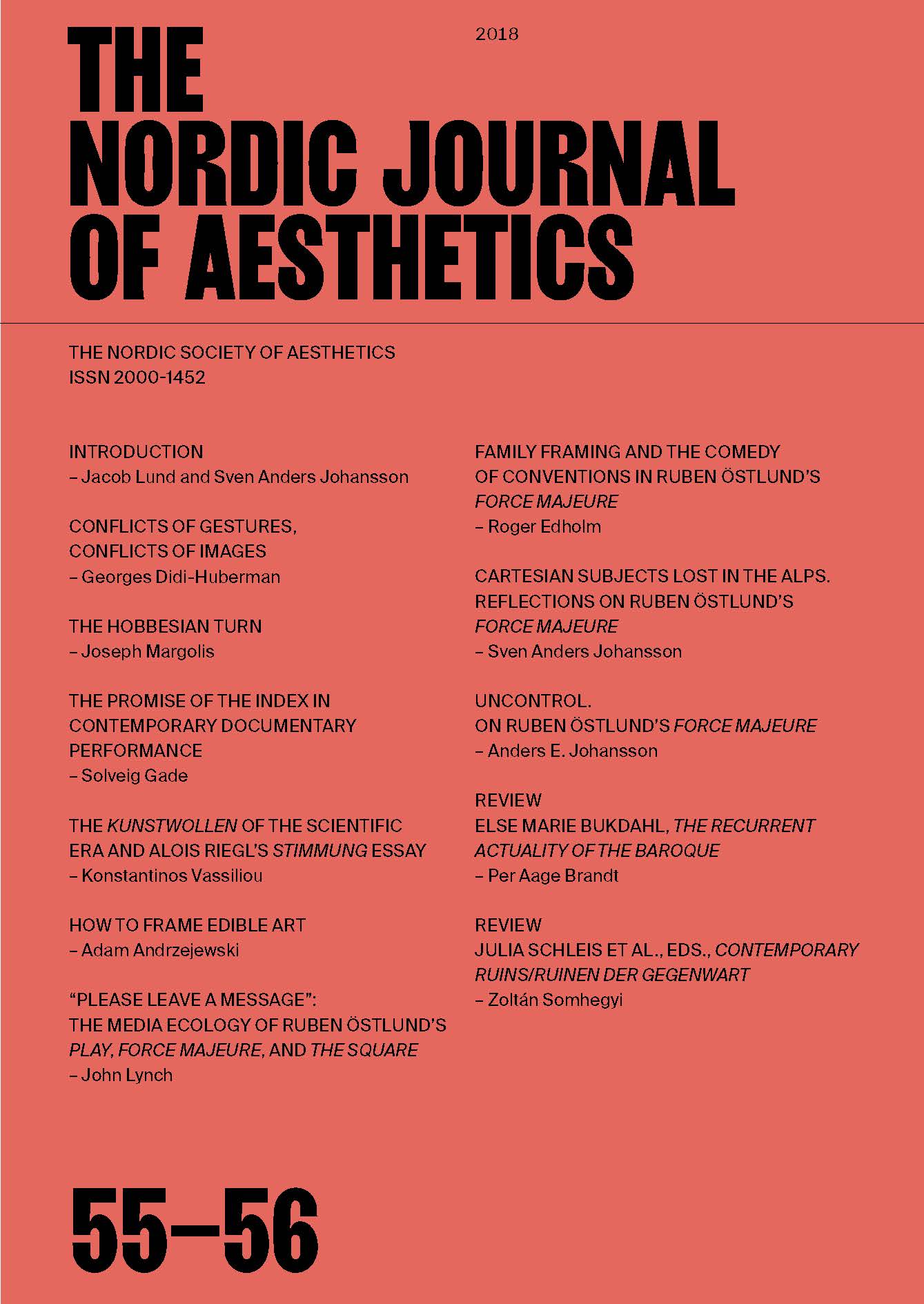THE PROMISE OF THE INDEX IN CONTEMPORARY DOCUMENTARY PERFORMANCE
DOI:
https://doi.org/10.7146/nja.v27i55-56.110753Abstract
This essay investigates the troubled status of the concept of the index and its concomitant notion of evidence within the context of a global, visual culture. Specifically, the essay centres on the notion of the index in an era, where the use of digital images claiming to truthfully represent war and conflict has become an increasingly important part of warfare. Focusing on two documentary works by respectively performance artist Rabih Mroué and visual artist Abu Lawrence Hamdan (Forensic Architecture), the article shows that whilst both artists rely on material documents, which in each their way index back to conflictual events, the crucial point is not so much the status of the evidentiary material per se. Instead, enabled by fictitious strategies, the artists invite us to pay attention to the differing statuses and meanings assigned to documents depending on the particular knowledge systems and spaces of appearance within which they are perceived. In this way, the essay argues, the works of Mroué and Hamdan help us move beyond the discourses within documentary theory, which tend to conform to either a postmodernist relativist position or a realist epistemology.
Downloads
Published
How to Cite
Issue
Section
License
Authors who publish with this journal agree to the following terms:
- Authors retain copyright and grant the journal right of first publication with the work simultaneously licensed under a Creative Commons Attribution License that allows others to share the work with an acknowledgement of the work's authorship and initial publication in this journal.
- Authors are able to enter into separate, additional contractual arrangements for the non-exclusive distribution of the journal's published version of the work (e.g., post it to an institutional repository or publish it in a book), with an acknowledgement of its initial publication in this journal.
- Authors are permitted and encouraged to post their work online (e.g., in institutional repositories or on their website) prior to and during the submission process, as it can lead to productive exchanges, as well as earlier and greater citation of published work (See The Effect of Open Access).




